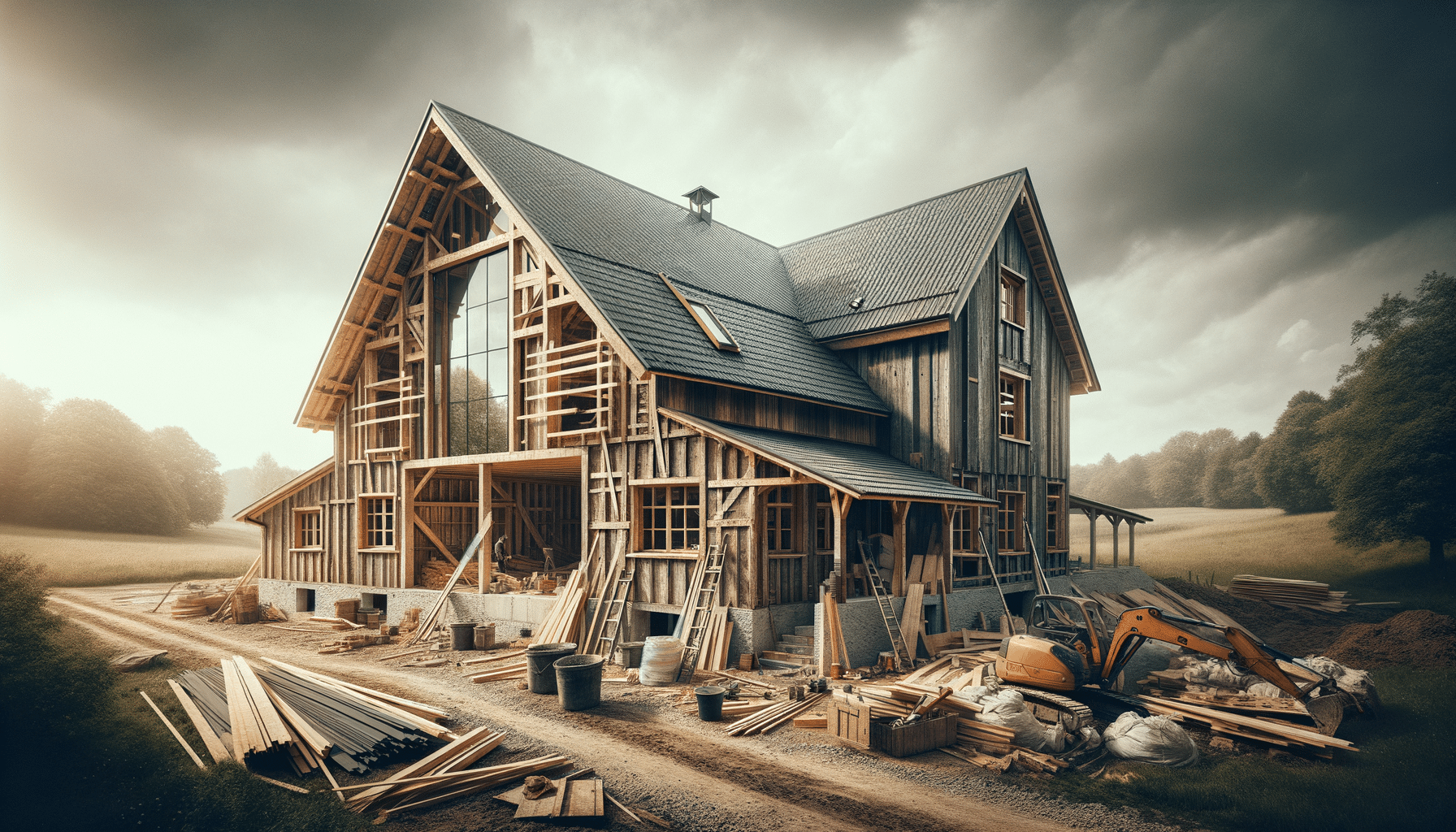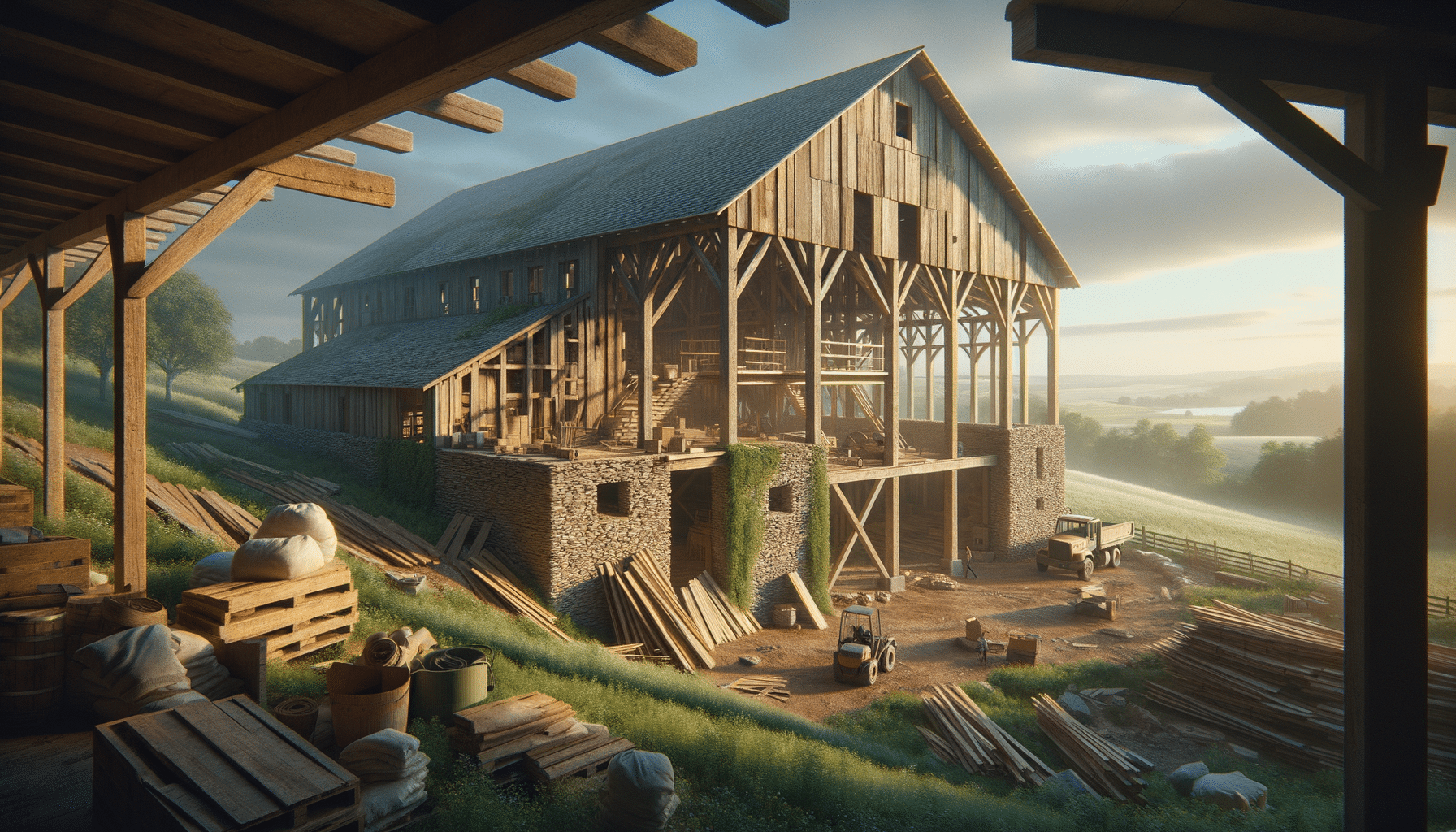
Barn-to-Home Conversion Contractors: Transforming Spaces with Expertise
Introduction to Barn-to-Home Conversions
The trend of converting barns into homes has gained remarkable popularity, offering a unique blend of rustic charm and modern living. These conversions not only preserve historical architecture but also provide homeowners with spacious, character-filled residences. The transformation of a barn into a livable home involves careful planning, design, and execution, making the role of barn-to-home conversion contractors crucial in this process.
Barns, often characterized by their high ceilings, exposed beams, and open spaces, offer an excellent canvas for creative design. The appeal lies in maintaining the original structure’s integrity while integrating modern amenities. Contractors specializing in these conversions bring a wealth of expertise, ensuring that each project meets both aesthetic and functional demands.
The Role of Contractors in Barn-to-Home Conversions
Barn-to-home conversion contractors play a pivotal role in transforming these historic structures into comfortable living spaces. They are responsible for assessing the structural integrity of the barn and determining the feasibility of the conversion. This involves a thorough inspection to identify any necessary repairs or reinforcements needed to meet building codes and safety standards.
Contractors also collaborate with architects and designers to create a layout that maximizes the barn’s unique features while ensuring functionality. They manage everything from installing insulation and plumbing to electrical systems and windows. Their expertise ensures that the final product is not only aesthetically pleasing but also energy-efficient and compliant with modern living standards.
- Assessing structural integrity
- Collaborating with architects and designers
- Managing installations and compliance with building codes
Challenges in Barn-to-Home Conversions
Converting a barn into a home is not without its challenges. One of the primary obstacles is dealing with the barn’s original structure, which may not have been built to accommodate modern residential needs. This includes addressing issues such as inadequate insulation, outdated electrical systems, and lack of plumbing.
Moreover, maintaining the barn’s historical features while incorporating modern amenities requires a delicate balance. Contractors must navigate these challenges while staying within budget and ensuring the project adheres to local zoning laws and regulations. This complexity underscores the importance of hiring experienced contractors who can foresee potential issues and develop effective solutions.
Benefits of Barn-to-Home Conversions
Barn-to-home conversions offer numerous benefits that attract homeowners seeking unique living spaces. First and foremost, they provide an opportunity to live in a home with historical significance and distinctive architectural features. The expansive interiors of barns allow for creative layouts and open-plan living, which are highly sought after in modern home design.
Additionally, these conversions are often more sustainable than building a new home from scratch. By repurposing existing structures, homeowners reduce the environmental impact associated with new construction. This, combined with the potential for energy-efficient upgrades, makes barn conversions an eco-friendly choice.
- Unique historical and architectural features
- Open-plan living possibilities
- Environmentally sustainable option
Finding the Right Contractor for Your Barn Conversion
Choosing the right contractor is a critical step in ensuring a successful barn-to-home conversion. Prospective homeowners should seek contractors with a proven track record in similar projects, as this experience is invaluable in navigating the unique challenges posed by barn structures.
It’s advisable to conduct thorough research and request references from previous clients to gauge a contractor’s reliability and quality of work. A good contractor will be transparent about costs, timelines, and potential challenges, providing a comprehensive plan that aligns with the homeowner’s vision and budget.
Ultimately, the right contractor will not only possess the technical skills required for the conversion but also share a passion for preserving the barn’s historical essence while transforming it into a modern, livable space.


